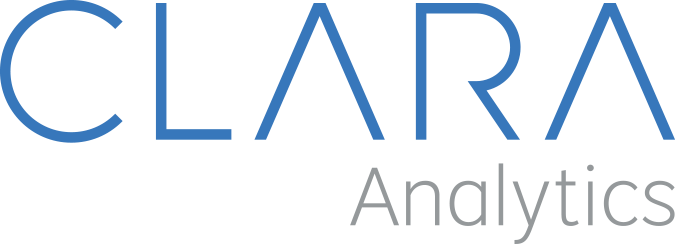Are Businesses Ready for AI? Why the Answer Doesn’t Matter (Part 2)
This article was first published in Dataversity.
In my previous article, I addressed some of the apprehension associated with artificial intelligence (AI). Now that AI is real and being put to work outside of research labs, some are afraid of losing their jobs to machines. Others worry that the technology could be misused, reinforce biases or perhaps get co-opted for more nefarious means. I would argue that AI naysayers are thinking about the situation the wrong way.
Although comments, criticism and questions are understandable, they are based on how the world functions right now. But innovation is not static. The world around us will change and mature, too. This, in turn, will require the commercial insurance industry to take a good hard look at what it is versus what it can be.
There Is No Crystal Ball
A couple of years ago, one of my customers owned a beautiful, traditional building in Seattle. Think offices and cubicles. They decided to sell the building and opt for a 30-year lease on a state-of-the-art space designed around how people work — open floor plan, lovely couches, lots of windows, every comfort you could think of. What’s headquarters like today? Empty. Most employees don’t come to the office anymore because they work remotely — and now the company is saddled with a building far bigger and more expensive than it needs for the next 20-something years. That is not to say tides won’t turn again, but the point is that people are afraid of what AI will be tomorrow according to present-day terms.
Fearing AI is akin to being scared by electricity when Ben Franklin lit up the kite. There was reason to be nervous. I’m sure electricity seemed quite unnatural and terrifying at the time, but think about how vastly different life would be if fear won and electricity was never used. By planning for tomorrow based on a limited view or context as it exists right now, we will miss the opportunities ahead.
Don’t Confuse Focus With Narrowness
Companies are built to drill into one (or at least relatively few) specific problem(s). In insurance, in particular, domain knowledge is essential, and organizations provide much-needed solutions. But companies also must see the forest for the trees and not define themselves in such a narrow way that they are closed off from how they are positioned in the larger scheme.
Consider the dawn of air travel. The people most capable of taking advantage of the market were the railroad barons. They were the ones with land, money and a choke hold on the transportation business. But, these men saw themselves solely as rulers of the railroad, a realm unto itself. If they had thought of themselves as leaders in transportation instead, they could have owned all of the airlines, planes, airports, etc. The same is true today. The companies that dig in their heels and have a fixed notion of what they are and how they should operate will eventually cease to exist. Instead, they could leverage AI to help them become more and appeal to customers in previously unimaginable ways.
There Is No “Now” Moment
There is rarely a clear signal that flashes “jump” when it’s time for an organization to make changes necessary to remain competitive over the long term. If you look at the evolution of business in the world, innovation in the marketplace rarely comes from existing companies. Kodak, for example, controlled the film market, but it wasn’t in the photo business. Kodak hung onto film long after pixels arrived, until the company was so far behind the rest of the world in pictures that it could never recover. And Kodak is far from alone. Blockbuster, Blackberry, Atari, Hostess, TiVo — the list of once-beloved-then-abandoned companies is extensive.
All of these businesses refused to move into a new mode because of too much fear, pain or expense; it was not who they were or saw a need to be, and the insurance industry is notoriously averse to change. Traditionally, it only happens when leadership believes in taking a risk or as a last resort, not because of some seminal moment. The question is how long do you have to adapt before falling too far behind to be successful. AI could expedite that timeline given the impact it’s already having on other industries.
Clearing the Way
No one knows what the future will bring — and how big or how small a role AI will play — but we are far enough along to know that AI is on the upswing, and its uses will continue to broaden as systems get smarter. So how do you take advantage?
Leave legacy systems behind. This is a scarier proposition than AI to many companies. Yet, with the proliferation of cloud-based applications and services, there is an opportunity for organizations to no longer feel locked into a singular way of doing business, which is a game-changer. The cloud provides an unprecedented level of freedom to innovate in ways that are far less permanent and expensive.
With more flexibility, companies can adapt at the speed of technology, learn from AI and evolve as it does (as well as the world at large). Organizations can plan and adjust to what’s happening around them in ways that make sense for the larger industry.
The bottom line is that AI is here — whether we are ready or not. Will you embrace its potential like Ben Franklin, or will you be a railroad baron and stay where it’s comfortable? The choice is yours.
Are you ready to leave legacy systems behind?
Are you ready to have your business systems change at the speed of technology?
Are you ready to have your business grow at the speed of light?




